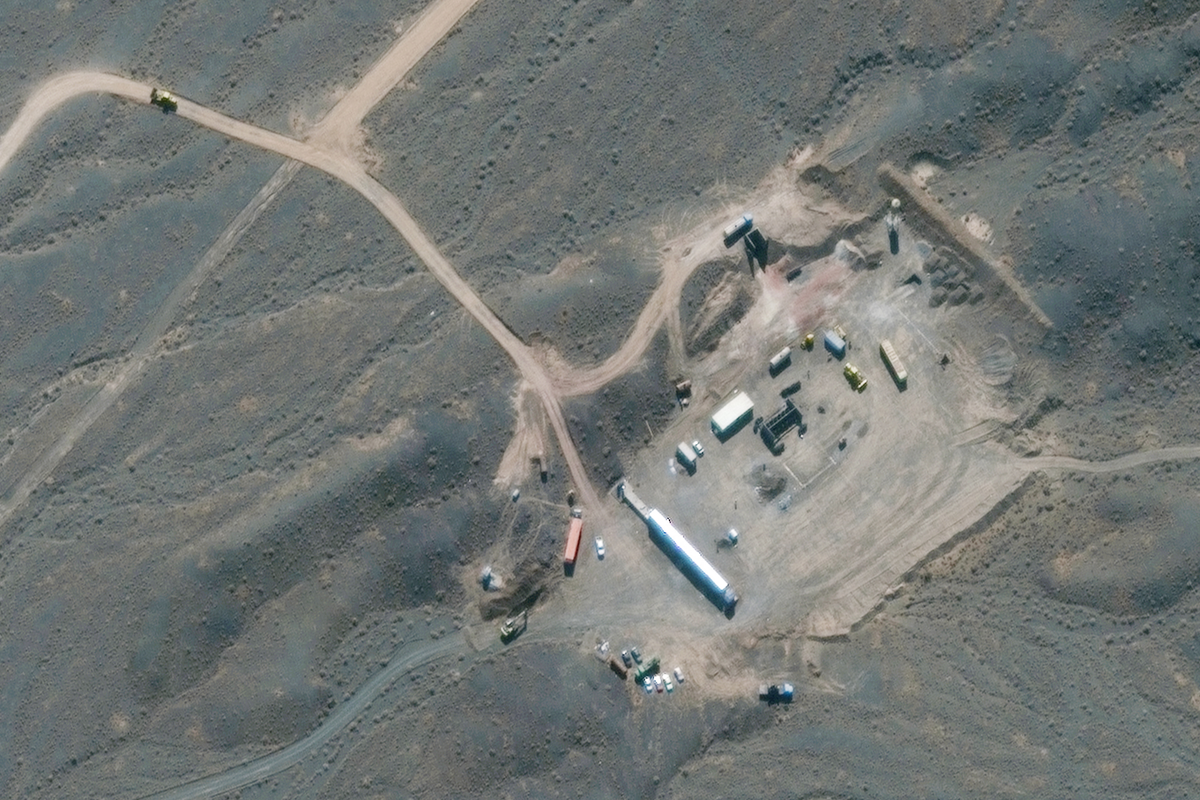Military exercises begin near Natanz nuclear site in Iran: State TV
Drills are scheduled to continue across Iran until mid-March
AFP
News Agency Partner
AFP is a renowned international news agency, delivering comprehensive and reliable reporting on global events, trends, and issues.

Archival overview of Iran's Natanz nuclear facility, south of the capital Tehran.
AFP
Iran's military has launched drills near the Natanz nuclear enrichment plant in response to new security threats.
The drills, called "Eqtedar," involve the Islamic Revolutionary Guard Corps (IRGC) and the Iranian army.
The exercises include air defense operations to protect the Natanz facility against potential threats.
Iran's military has launched drills near the Natanz nuclear enrichment plant in the central part of the country, state media reported Tuesday, as part of nationwide exercises.
The drills, called "Eqtedar" — meaning "might" in Farsi — involve the Islamic Revolutionary Guard Corps (IRGC) along with the Iranian army.
"The first phase of the joint Eqtedar exercises in the air defense zone of the Natanz nuclear facility has commenced under the orders of the air defense headquarters commander," state television reported.
IRGC air forces are conducting "an all-out point defense" of the site "against a multitude of air threats in tough electronic warfare conditions," the report added.
IRGC spokesman Ali Mohammad Naini said the exercises, scheduled to continue across the country until mid-March, are a response to "new security threats." He did not elaborate on the nature of the threats. Other branches of the IRGC, including the navy and the paramilitary Basij forces, are also participating in the drills.
Tensions presist
Last week, U.S. news outlet Axios reported that White House national security adviser Jake Sullivan presented President Joe Biden with potential military options for striking Iran's nuclear facilities if Tehran advanced toward developing a nuclear weapon before January 20, the date of President Donald Trump's departure from office.
Iran's foreign ministry spokesman, Esmaeil Baqaei, condemned such threats, calling them a "gross violation of international law."
Tehran insists its nuclear program is solely for peaceful purposes and denies any intention to develop atomic weapons. However, the International Atomic Energy Agency (IAEA) recently reported that Iran has increased its production of enriched uranium, reaching levels of 60 percent purity—the highest of any non-nuclear weapons state and a step closer to the 90 percent needed for weapons-grade material.
Tensions over Iran's nuclear activities have escalated since the United States, under Trump, withdrew from a landmark 2015 nuclear agreement that provided Iran with sanctions relief in exchange for limits on its nuclear program.










Comments
See what people are discussing